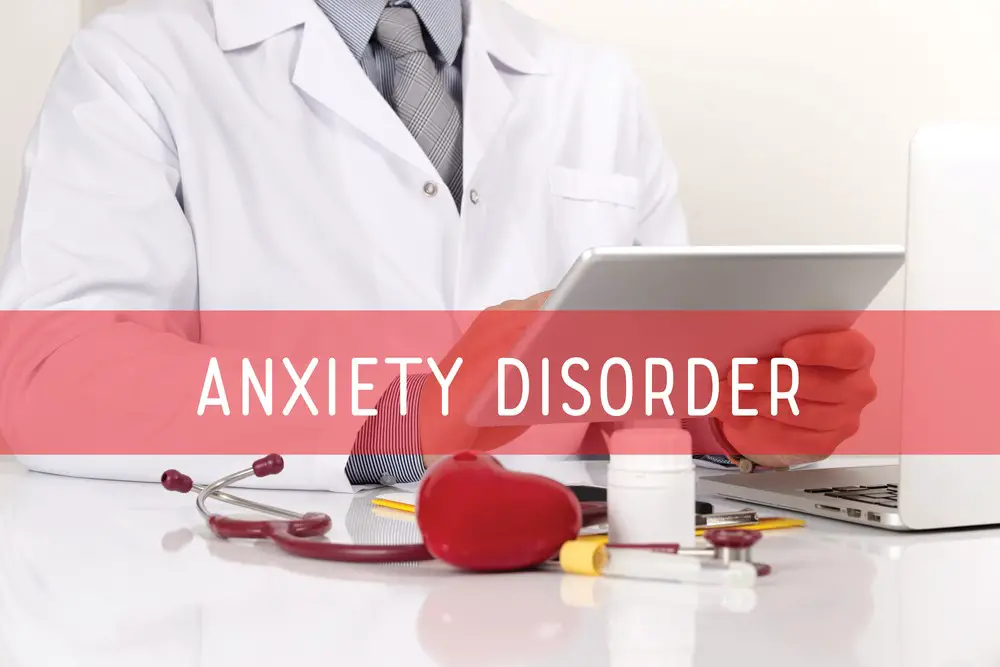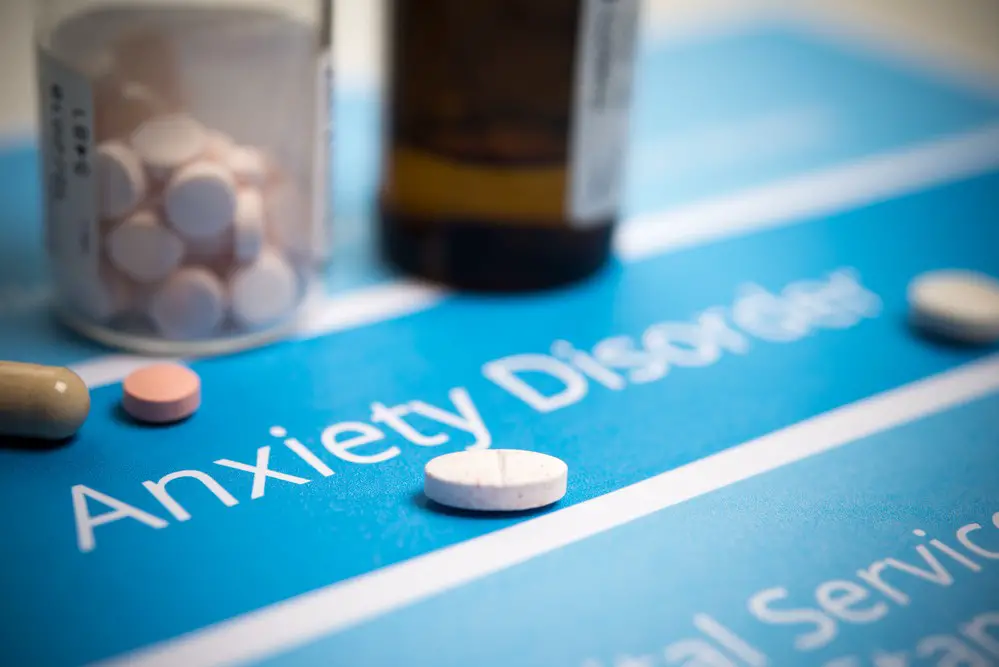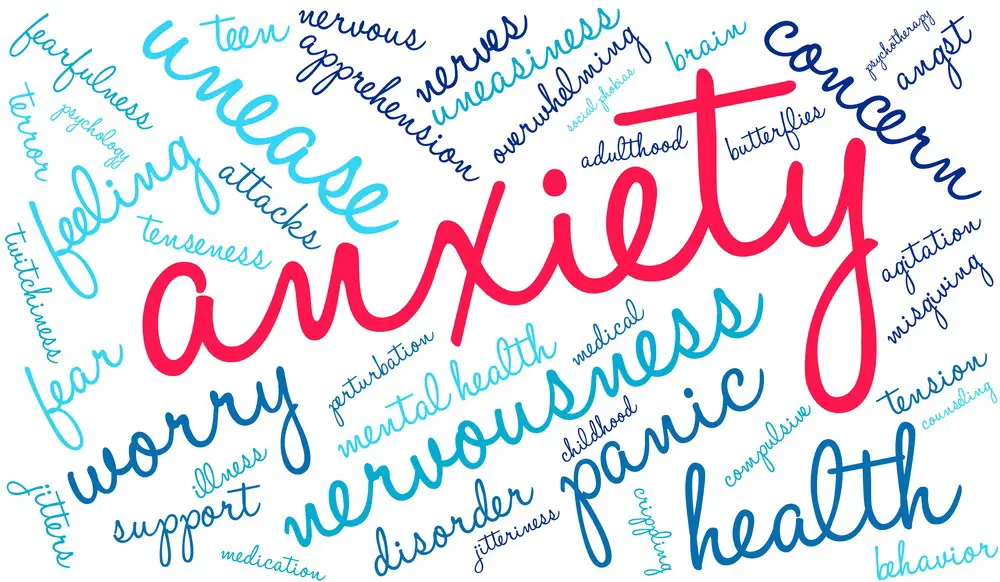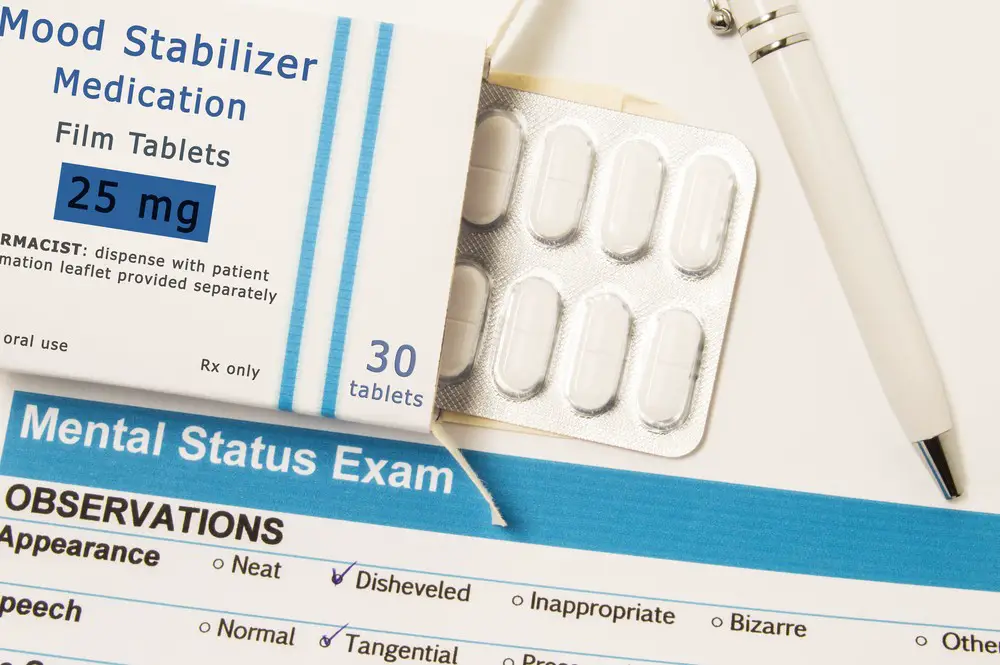As a BetterHelp affiliate, we receive compensation from BetterHelp if you purchase products or services through the links provided
Lithium, a naturally occurring alkali metal, has long been used to treat various mental health disorders, most notably bipolar disorder. However, recent studies and clinical observations have suggested that lithium may also significantly manage anxiety symptoms. As anxiety disorders represent one of the most prevalent mental health conditions worldwide, exploring lithium as a potential alternative or complementary treatment option has gained substantial interest among researchers and clinicians alike.
A better understanding of the link between lithium and mental health involves examining its mechanism of action within the brain. While the exact means by which lithium works to combat anxiety is not entirely understood, it appears to modulate various neurotransmitters and protect neural circuits involved in regulating mood and stress response. This relative stabilizing effect on brain function may account for its observed effectiveness in reducing anxiety symptoms for many patients.
Key Takeaways
- Lithium may serve as a potential treatment option for managing anxiety symptoms.
- The metal’s effectiveness is thought to be linked to its ability to modulate neurotransmitters and protect neural circuits.
- Prescription, dosage, and potential side effects should be carefully considered when exploring lithium as an anxiety treatment option.

Understanding Lithium
Lithium is a soft, silvery-white alkali metal that occurs naturally in small amounts in various minerals. It was first discovered in 1817 by Johan August Arfwedson, a Swedish chemist. Over the years, lithium has been widely used for various applications, such as batteries and mood stabilizers.
As a mood stabilizer, lithium is often prescribed as lithium salts like lithium carbonate and lithium citrate. These salts are more soluble in water, making them easier for the body to absorb. Due to their chemical properties, lithium salts can help balance and stabilize mood fluctuations in individuals with mental health disorders such as bipolar disorder and anxiety.
Lithium is believed to work by affecting certain chemicals in the brain, known as neurotransmitters. These neurotransmitters regulate mood, emotions, and other nervous system functions. Through various mechanisms, lithium helps to reduce the severity and duration of manic and depressive episodes in bipolar disorder patients and also helps alleviate symptoms of anxiety.
The therapeutic window for lithium is quite narrow, and the effective dosage varies among individuals. Doctors usually start with a low dose and gradually increase it while monitoring the patient’s blood levels of lithium to avoid potential side effects. Some possible side effects of lithium can include hand tremors, increased thirst, weight gain, and thyroid problems.
In conclusion, lithium is a valuable tool in treating anxiety and other mood disorders. Its effectiveness as a mood stabilizer is well-documented, and its use in this capacity has stood the test of time. Despite potential side effects, lithium plays a significant role in helping millions of people manage their mental health conditions.
Link Between Lithium and Mental Health
Lithium is a naturally occurring element that has long been recognized for its potential to treat various mental health disorders. Its efficacy in managing bipolar disorder, depression, and schizophrenia has been extensively studied and established. Furthermore, recent research has suggested that lithium may benefit those experiencing anxiety.
In the case of bipolar disorder, lithium serves as a mood stabilizer, helping to reduce the severity and frequency of both manic and depressive episodes. This is crucial for patients, as it allows them to maintain a more balanced mental state and minimize the impact of their condition on daily functioning.
Moreover, lithium can effectively treat depression, particularly for those who have not responded well to other antidepressants. Its precise mechanism of action remains under investigation, but it is believed to enhance the effectiveness of neurotransmitters within the brain, thereby stabilizing mood and improving overall mental health.
For individuals living with schizophrenia, lithium has been found to alleviate certain symptoms, such as agitation and aggression. This may be particularly beneficial for patients who struggle with these issues on top of the more typical symptoms of the disorder, such as hallucinations and delusions.
Emerging research also indicates that lithium could play a role in managing anxiety. Though definitive conclusions have yet to be drawn, some studies suggest that the element may help to moderate feelings of apprehension and unease by targeting the brain’s underlying neurotransmitter systems.
In summary, the connection between lithium and mental health is well-established and backed by significant research. Its effectiveness in tackling bipolar disorder, depression, schizophrenia, and potential anxiety demonstrates why it remains a key component in treating various mental health conditions.

Mechanism of Lithium in Anxiety
Lithium, a mood stabilizer, has been used for decades in treating mental health disorders such as bipolar disorder and major depression. Recently, its potential role in managing anxiety has gained attention. The exact mechanism of how lithium affects anxiety remains not fully understood; however, its effect on certain neurotransmitters has been observed.
Lithium is known to exert its effects on neurotransmitters such as serotonin, norepinephrine, and glutamate. It modulates their functions, which can impact mood and anxiety levels. For instance, lithium can enhance serotonin transmission, which promotes a sense of well-being and alleviates anxiety.
Furthermore, it has been suggested that lithium can alter norepinephrine levels, another neurotransmitter involved in mood regulation. By reducing the overactivity of norepinephrine, lithium may help lessen the anxiety symptoms that arise from exaggerated responses to stress.
In addition to its effects on serotonin and norepinephrine, lithium has been shown to influence glutamate – an excitatory neurotransmitter. Overactivity of glutamate can result in a heightened stress response and increased anxiety. Lithium’s ability to modulate glutamate activity may contribute to its potential to ease anxiety symptoms.
In summary, the mechanism of lithium’s action on anxiety is complex and involves its influence on various neurotransmitters, including serotonin, norepinephrine, and glutamate. Although further studies are needed to elucidate its mechanisms fully, lithium’s interaction with these neurotransmitters is a potential treatment option for anxiety disorders.

Lithium as Treatment Options
Lithium is a well-known treatment option for various mental health disorders, primarily bipolar depression. It functions by stabilizing mood swings and minimizing the occurrence of manic and depressive episodes. These characteristics also make lithium a potential treatment option for certain anxiety disorders, although its usage for anxiety is considered off-label.
Lithium can be used as a monotherapy to treat individuals who do not respond well to other anxiety medications or treatments. This approach benefits those with treatment-resistant conditions, providing an alternative option when conventional methods fail. It is essential to note that using lithium off-label for anxiety should be done only under a healthcare provider’s supervision to ensure proper dosage and monitoring of potential side effects.
Lithium may be prescribed as a supplementary treatment option for anxiety disorders in combination with other medications. For instance, it can be combined with selective serotonin reuptake inhibitors (SSRIs) or benzodiazepines to enhance their efficacy or reduce unwanted side effects. This approach may benefit patients with comorbid conditions, as lithium can simultaneously target multiple symptoms.
Lithium is a versatile medication offering several treatment options for individuals suffering from mental health disorders, including anxiety. Though primarily prescribed for bipolar disorder, its off-label usage in managing certain anxiety disorders may relieve those unresponsive to conventional treatments. As with any medication, it is crucial to consult a healthcare professional before considering lithium as a treatment option for anxiety to ensure safety and efficacy.
Prescription and Dosage
Lithium is a prescription medication often used to help manage anxiety and other mood disorders. A healthcare provider may prescribe lithium in different forms, such as tablets, capsules, or extended-release tablets. It is crucial to follow the prescribed dosage and instructions by the doctor to ensure effective treatment and minimal side effects.
Lithium dosage for anxiety depends on various factors, including the severity of symptoms, age, and individual response to the medication. Typically, a doctor will initially prescribe a lower dosage and gradually increase it as needed, monitoring the patient’s progress as they adjust to the medication.
The usual starting dose for lithium tablets or capsules is around 300 mg, taken two to three times per day. Based on the patient’s response and tolerance, the dose may be increased, reaching an optimal maintenance dose of 900 to 1,800 mg daily. Due to their slow-release design, extended-release tablets may have similar dosing schedules but fewer daily administration times.
To minimize side effects and maintain a consistent level of lithium within the body, it is important to:
- Take lithium at evenly spaced intervals, as instructed by the doctor
- Monitor for any side effects or changes in symptoms
- Regularly consult with the healthcare provider to adjust dosage as necessary
Remember, lithium is a powerful medication with a narrow therapeutic range, meaning that the difference between an effective dose and a toxic dose is small. Therefore, it is essential to closely follow the prescription and dosing instructions to maintain safe and effective treatment.

Interactions with Other Medications
Lithium, often prescribed for anxiety and other mental health conditions, can interact with various medications. Awareness of these interactions is important to ensure safe and effective treatment. The following paragraphs discuss some common drug interactions when taking lithium.
Antidepressants: SSRIs (Selective Serotonin Reuptake Inhibitors) and SNRIs (Serotonin-Norepinephrine Reuptake Inhibitors) can interact with lithium. These medications are commonly prescribed for depression and anxiety. Combining lithium with antidepressants may increase the risk of serotonin syndrome, a potentially life-threatening condition. Therefore, caution should be exercised while using these drugs together.
Atypical antipsychotics: Lithium may also interact with atypical antipsychotics such as risperidone, olanzapine, and aripiprazole. Combining these medications can increase the risk of neurotoxicity and other side effects. It is essential to monitor the use of these medications carefully and adjust doses accordingly.
Calcium channel blockers: Certain calcium channel blockers, such as verapamil, may increase lithium levels in the body. This can lead to an increased risk of lithium toxicity. Patients taking both medications should be closely monitored, and dosages may need to be adjusted.
In conclusion, being aware of potential drug interactions when taking lithium for anxiety is crucial. Patients should inform their healthcare providers of their current medications to ensure safe and effective treatment. Keeping communication open with healthcare professionals can help avoid any complications arising from drug interactions.
Impact on Children and Pregnancy
Lithium, a mood stabilizer for treating bipolar disorder, has shown some potential in managing anxiety. However, it is essential to exercise caution when considering its impact on children and during pregnancy.
In children, the use of lithium has not been extensively studied, making it difficult to establish firm guidelines for its use in this population. As children’s bodies are still developing, it’s crucial to be cautious when prescribing medications that may affect their growth and development. Some research suggests that lithium may cause hormonal imbalances or impact kidney function in children, but further studies are needed to draw definitive conclusions.
During pregnancy, lithium use is associated with a slight increase in the risk of congenital malformations, especially in the heart. Pregnant women should discuss the potential risks and benefits with their healthcare provider, as maintaining stable mental health during pregnancy is essential for both the mother and the developing baby. If the risks outweigh the benefits, alternative medications or non-pharmacological treatments should be considered.
Breastfeeding while using lithium may pose a risk to the nursing child, as the medication can pass through breast milk. Although studies report varying levels of lithium found in breast milk, all suggest monitoring the infant is essential. This can include regular check-ups with a pediatrician and monitoring the infant’s growth, development, and hydration levels. Mothers using lithium should consult their healthcare providers before breastfeeding to explore alternative feeding alternatives.
In conclusion, while lithium may be beneficial in managing anxiety, its impact on children and pregnancy requires further research and careful consideration. Healthcare providers should weigh the potential risks against the benefits before prescribing lithium to children, pregnant or breastfeeding women.
Lifestyle Considerations
When considering lithium as a treatment option for anxiety, evaluating certain lifestyle factors contributing to overall mental health is important. A person’s diet, caffeine intake, exercise habits, and alcohol consumption can all significantly impact their anxiety levels and potentially influence the efficacy of lithium treatment.
A well-balanced diet can play a crucial role in managing anxiety symptoms. Consuming various whole foods, including fruits, vegetables, lean proteins, and whole grains, is important. These foods provide essential nutrients that support proper brain function and emotional regulation. Staying hydrated and avoiding excess sugar and processed foods can help stabilize mood and reduce anxiety.
Caffeine intake is another significant lifestyle factor because it can exacerbate anxiety symptoms. Those struggling with anxiety and using lithium for treatment should aim to reduce or eliminate caffeine consumption as it may worsen their condition. This involves cutting back on coffee, tea, energy drinks, and chocolate, as all these products contain caffeine.
Regular exercise can often help alleviate anxiety symptoms, as physical activity releases endorphins that improve mood and mental well-being. Incorporating various forms of exercise, such as aerobics, strength training, and yoga, can provide a holistic approach to managing anxiety. Creating a consistent exercise routine and finding enjoyable activities are essential in maintaining an active and balanced lifestyle.
Alcohol consumption should be approached with caution when dealing with anxiety. Although alcohol may initially seem to alleviate symptoms, it can ultimately exacerbate anxiety and interfere with the effectiveness of lithium treatments. It is recommended that individuals seeking relief from anxiety through lithium reduce or avoid alcohol consumption altogether.
In summary, adopting healthy lifestyle habits and making conscious choices about one’s diet, caffeine intake, exercise routine, and alcohol consumption can significantly impact anxiety management alongside lithium treatment. It’s essential for individuals addressing their anxiety to evaluate these factors and implement changes as needed for a more balanced and effective approach to mental health care.

Potential Adverse Effects
Lithium, a commonly prescribed treatment for anxiety and mood disorders, can potentially cause several side effects. These effects vary among individuals, with some experiencing mild discomfort while others may require medical intervention or a change in medication.
One of the common side effects of lithium is nausea. Patients may experience an unsettled stomach upon starting the medication, but this usually subsides as the body adjusts. Vomiting may also occur but is less common than nausea. Over-the-counter medications or adjustments to the lithium intake time may help manage these side effects.
Another frequently reported side effect is headaches. These can range from mild to severe and may occur during the initial stages of lithium therapy. The use of over-the-counter pain relievers, such as acetaminophen or ibuprofen, often helps in alleviating headaches.
Weight gain has been reported in some patients during lithium treatment. This could be attributed to an increase in appetite or changes in metabolism. A balanced diet and regular exercise can help mitigate this side effect.
Patients may also experience drowsiness as a side effect of lithium. This can particularly be challenging during the day, as it may interfere with normal daily activities or work. Under a healthcare professional’s guidance, adjusting the medication’s timing may help reduce drowsiness.
Tremors are another possible adverse effect of lithium use. These can manifest as involuntary shaking of the hands or other body parts. Lowering the dosage of lithium under medical supervision may alleviate this side effect.
Lastly, hair loss has been reported as a potential side effect of lithium therapy. While this may be distressing, it is usually temporary, with hair growth typically returning once the medication is discontinued or the dosage is adjusted.
It is crucial to note that not all patients will experience these side effects, and many may encounter only minimal discomfort. In case of severe or persistent side effects, consulting with a healthcare professional is essential in determining the next action.
Understanding Serious Side Effects
When using lithium for anxiety, knowing the potential serious side effects is crucial. These may include dehydration, hypothyroidism, kidney disease, and serotonin syndrome. This section aims to provide a clear and concise overview of these side effects without exaggerating or making false claims.
Dehydration is a common concern when taking lithium, as the drug may cause increased urination, leading to fluid loss. It is essential for individuals taking lithium to drink sufficient water and maintain hydration. This can help prevent negative effects on kidney function.
Hypothyroidism, a condition where the thyroid gland does not produce enough hormones, can also occur as a side effect of lithium use. Symptoms may include weight gain, fatigue, and depression. Patients must monitor their thyroid function regularly and adjust their medication under a doctor’s supervision if necessary.
Kidney disease is another potential side effect of long-term lithium use. Monitoring kidney function and maintaining proper hydration can help reduce the risk of kidney damage. Patients should work closely with their healthcare professionals to ensure appropriate testing and monitoring.
Serotonin syndrome, a rare and potentially life-threatening condition caused by excessive serotonin levels, can result from combining lithium with other medications that affect serotonin levels. Symptoms can include agitation, fever, and muscle rigidity. Patients on multiple medications should consult their healthcare provider to ensure the combination is safe and appropriate.
In conclusion, understanding and being vigilant about the serious side effects of lithium is crucial for those using it as a treatment for anxiety. Regular monitoring, appropriate hydration, and open communication with healthcare professionals can help mitigate these risks and ensure lithium’s safe and effective use.
Managing Side Effects
Lithium as a supplement for anxiety may sometimes result in certain side effects. These can range from mild to severe, depending on the individual and their unique tolerance to the substance. It is important to follow a few guidelines to manage these side effects.
When taking lithium, some individuals may experience a rash. In such cases, it is advisable to contact a healthcare professional to advise on managing the rash and determine if the lithium dosage needs to be adjusted. Meanwhile, keep the affected area clean and avoid using any irritating products to prevent the rash from worsening.
Constipation is another side effect that some individuals may encounter when using lithium. To help alleviate constipation, it can be beneficial to incorporate more fiber-rich foods into the diet, such as fruits, vegetables, and whole grains. Drinking plenty of water and regular exercise can also help keep the digestive system functioning optimally.
Increased thirst might occur while taking lithium. It is essential to listen to your body’s signals and drink water whenever needed. Staying hydrated also helps prevent other side effects, such as constipation.
Loss of appetite is also a common side effect experienced by some individuals taking lithium. However, it is essential to maintain a balanced diet to provide the body with the necessary nutrients for optimal functioning. Eating smaller, more frequent meals might help address the loss of appetite.
Incorporating these strategies can help manage the side effects associated with lithium as a supplement for anxiety. Contacting a medical professional to address any concerns or adjustments needed in the individual’s treatment plan is crucial.
Exploring Alternatives to Lithium
Lithium has been widely used for anxiety and other mental health disorders. However, several alternative treatments are worth considering for individuals who may experience side effects from lithium or require a different approach.
One popular alternative is quetiapine. This atypical antipsychotic medication effectively treats anxiety and may also help stabilize mood. It is commonly prescribed for bipolar disorder and can be a suitable option for those who do not respond well to lithium.
Olanzapine, another atypical antipsychotic, has effectiveness in treating anxiety as well as bipolar disorder symptoms. While it may also have side effects similar to lithium, olanzapine can offer an alternative for certain patients.
Lamotrigine is an anticonvulsant drug that can help manage anxiety and mood disorders. It is especially beneficial for individuals with a history of rapid cycling mood episodes. Lamotrigine’s mechanism of action differs from lithium, making it a viable alternative for patients who do not tolerate lithium-based treatments.
Buspirone is an anxiolytic medication that works differently than antidepressants or benzodiazepines. It has fewer side effects than traditional anxiety medications like lithium, making it an appealing option for long-term treatment.
In addition to these pharmacological options, psychotherapy is essential to treating anxiety and other mental health disorders. A psychiatrist or psychologist may use cognitive-behavioral, dialectical behavior, or interpersonal therapy to address the underlying issues triggering anxiety.
Consulting with a psychiatrist can help patients identify the most suitable anxiety treatments based on an individual’s unique needs. A psychiatrist is well-equipped to evaluate the efficacy of medications in combination with non-pharmacological therapies for anxiety.
Addressing addiction when treating anxiety and other mental health disorders is crucial, as substance abuse can exacerbate symptoms. Addiction treatment should be a part of the overall treatment plan to ensure proper recovery and reduce the risk of relapse.
In conclusion, several alternatives to lithium can potentially help manage anxiety and other mental health disorders. A combination of both pharmacological and non-pharmacological therapies can contribute to more effective and individualized treatment plans.
Brand and Cost Details
Several brands of lithium are available to help manage anxiety symptoms. Some popular options include:
- Lithobid: One of the most common lithium brands, Lithobid comes in a slow-release formulation. It is typically priced around $25 to $40 monthly, depending on the dosage and health insurance coverage.
- Eskalith: Eskalith is another prevalent lithium brand, available in capsule and tablet forms. The monthly cost typically ranges from $30 to $50, depending on factors like insurance and dosage.
- Quilonum: This brand is not as widely known as Lithobid or Eskalith, but Quilonum offers an extended-release tablet formulation of lithium. The cost is generally between $20 to $40 per month, making it an affordable alternative for some.
It is important to note that the prices above may vary based on factors such as pharmacy location, available discounts, and insurance coverage. In many cases, patients can find generic versions of these medications at lower prices.
Here is a brief comparison table of these particular brands:
| Brand Name | Formulation | Price Range per Month |
|---|---|---|
| Lithobid | Slow-release | $25 – $40 |
| Eskalith | Capsule/Tablet | $30 – $50 |
| Quilonum | Extended-release | $20 – $40 |
Manufacturer-sponsored programs and pharmacy discount cards can also sometimes reduce prescription costs. It is recommended that individuals discuss their specific insurance coverage and financial situation with their healthcare provider to determine if lithium is a suitable and affordable treatment option for their anxiety.
Frequently Asked Questions
Does lithium help with anxiety and depression?
Lithium is primarily known for its effectiveness in treating bipolar disorder. However, it can also be helpful for people experiencing anxiety and depression. In cases of unipolar depression, lithium is often given as an adjunct treatment alongside other medications. It is important to consult a mental health professional to determine if lithium is the right choice for individual cases.
What are the common side effects of lithium for anxiety?
Some common side effects of lithium include increased thirst, frequent urination, fine tremors, weight gain, and gastrointestinal issues. These side effects may vary in severity and should be discussed with a healthcare provider to determine if lithium is the best option for anxiety treatment.
How long does it take for lithium to work for anxiety?
The duration for lithium to have noticeable effects on anxiety may vary between individuals. Generally, lithium takes one to two weeks to reach therapeutic levels in the body, but improvements in anxiety may be seen sooner. Following the prescribed dosage and monitoring the effects with a healthcare professional is crucial.
What is the recommended dosage of lithium for anxiety?
Lithium dosage varies based on individual factors and the severity of anxiety. A typical adult starting dosage is 300 mg two to three times daily. However, it may be adjusted according to individual response and tolerance. A healthcare professional should monitor the treatment closely and provide dosage adjustments as needed.
Can low-dose lithium be effective for anxiety?
Low-dose lithium, often at a dosage between 150 mg to 600 mg daily, can be a helpful option for individuals with milder anxiety symptoms. Some studies have shown that low-dose lithium can reduce anxiety and improve mood. However, clinical research in this area is limited, and the results may not be conclusive.
Is lithium orotate a safe alternative for anxiety treatment?
Lithium orotate is a supplement containing lithium and orotic acid, believed to stabilize mood. Some proponents claim it can be a safer, over-the-counter alternative to prescription lithium. However, the effectiveness and safety of lithium orotate for anxiety have not been well-studied, and the FDA does not approve it for anxiety treatment. It is essential to consult with a healthcare provider before trying lithium orotate or any other alternative treatments.
As someone who has faced mental health challenges while navigating a difficult custody battle with a narcissistic ex-partner, I understand the importance of prioritizing self-care and seeking help. I take Lexapro to manage my symptoms and make a point to take long walks every day to stay grounded and centered. Despite my ex-partner’s consistent refusal to comply with court orders and allow me communication with my children, I remain committed to fighting for their well-being. I write articles about mental health and narcissism to support and guide others facing similar challenges and raise awareness about seeking help and support for mental health issues.
- 3 Ways Wearing a Hat Can Help Lower Your Stress Levels - April 19, 2025
- Breaking the Silence: Why Men’s Mental Health Matters More Than Ever - April 15, 2025
- How to Transform a Home’s Patio Space into a Relaxing Space - March 23, 2025
This site contains affiliate links to products. We will receive a commission for purchases made through these links.



